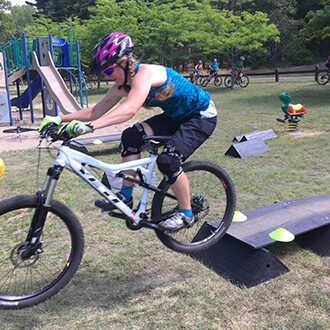If you’re one of the many people that perform intense training sessions only to end up skipping recovery days to push your limits, then you should carefully examine your actions. You must give your muscles enough time to heal, or else you’ll suffer the consequences later on!
Failing to take a break despite the signs your body is showing will pull you back from improving your athletic capabilities further. When you start to feel pain in your muscles while training to increase your strength, speed, endurance, or power, it becomes blatantly necessary to start focusing on your recovery first!
You won’t accomplish anything from continually pushing yourself even though you’re way past your limits. Instead, when you allow your body to heal, that’s the only time you can experience the gains.
Keep reading below to find out why sports recovery is important to restore your muscles and avoid feeling pain, fatigue, and exhaustion.
Reasons to Take Your Muscle Recovery Seriously
Athletes and gym-goers tend to overestimate their physical capabilities when it comes to fitness activities, choosing to work out even when they’ve reached past their breaking point. Some believe that when you’re under immense pain after a workout, you’re on your way to witnessing better outcomes! Unfortunately, when you place a significant amount of stress on your muscles, you’re making it harder for your body to recover faster and provide you with the results you want.
High-Intensity Training Can Lead to Injury
When you run a marathon, take a CrossFit class, or perform strength training drills, those activities are considered high-intensity exercises. It means that they can form tiny tears on your muscles, especially when you overdo yourself.
Once you forget to perform a post-marathon recovery or proper training cooldown, your body will feel sore, and it will be painful for you to move and go on with your daily routine. Besides that, the damage to your soft tissues can prevent your muscles from retrieving glycogen, which is an essential element needed to provide you with sufficient energy.
Acid Can Build Up in Your Cells During Training
High-intensity workouts can provoke the buildup of lactic acid found in your body’s cells. When that specific acid starts to pile up around your stomach’s muscle region, you are bound to experience a delayed onset muscle soreness (DOMS).
The lactic acid buildup that occurs can also damage your electrical stimulus, which is necessary for initiating muscle contraction. Other than that, it impacts your body’s capability to regain its ATP, a vital molecule that works to support recurring muscle contractions.
You Need to Repair Your Muscle Tissues
The amount of unnecessary pressure you’re placing on your muscles whenever you decide to skip recovery exercises can be detrimental to your health in the long run. Instead of skipping stretching and rest days, you should give your body the time to adjust and prepare for your next session instead.
When your muscles heal without interference, the little traumas that your tissues went through during your last training will start to repair on their own. That way, the next time your body experiences stress, you are stronger and more capable of managing your condition.
Conclusion
Remember to avoid overdoing yourself—especially when you’re executing high-intensity workouts that can end up damaging your muscles. While you want to prove yourself wrong by pushing your body’s limits, it’s much better to witness yourself become stronger and faster by giving in to recovery days! If you don’t, your exercises can lead you to experience unwanted injuries and allow acid to build up in your cells—preventing your muscles from repairing themselves naturally. If you require professional guidance, it’s best to rely on a fitness coach to assist you with a personalized routine while never forgetting to include recovery periods.
Are you looking for the best athletic massage in New York to help with your next recovery day? Meg Parker is an intentional health coach and skilled massage therapist that offers sports massage, deep tissue, reflexology, lymph drainage, and more. Get in touch today to find out how we can help you!









